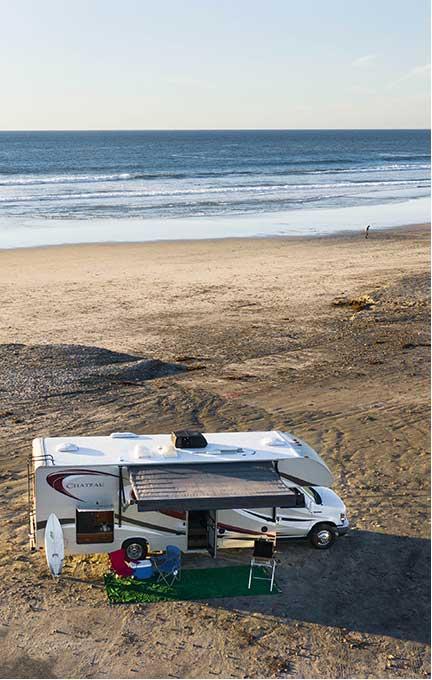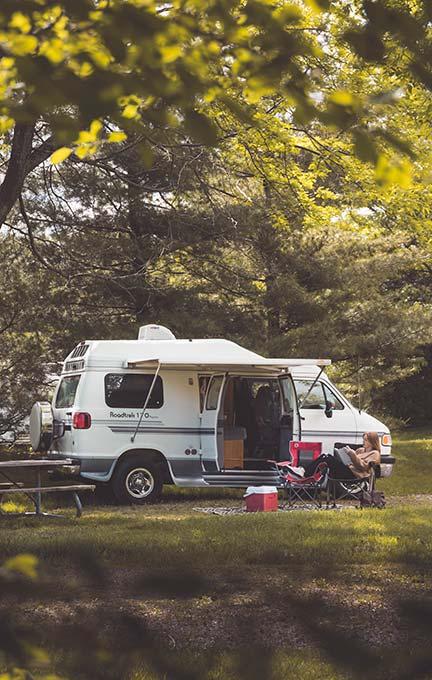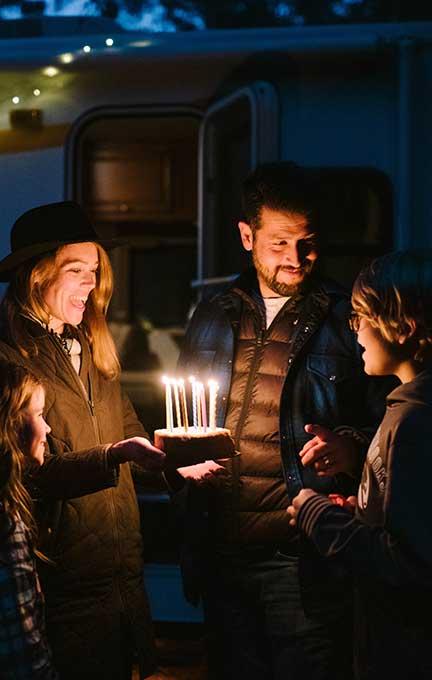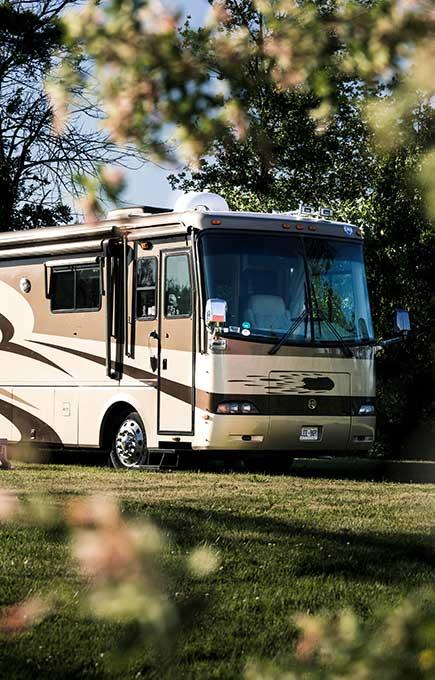Have you ever fantasized about roaming freely in your very own recreational vehicle? The liberty and adventure sound thrilling. However, before you take the leap and make the purchase, it’s crucial to comprehend the real costs associated with RV ownership. Aside from the initial investment, various other expenses may not be immediately apparent.
Try Before You Buy: RVs For Rent Near You
The Initial Purchase
The first, and most noticeable, cost of RV ownership is the initial purchase price. Whether you’re eyeing a brand-new, mid-range motor home or a pre-owned camper, it’s a substantial investment. As per The Hitch House, a new motor home will cost around $150,000. Conversely, a used camper or small travel trailer could cost about $15,000, while a new model could set you back by $40,000 or more.
Here’s a brief overview of these initial costs:
| RV Type | New Model | Used Model |
|---|---|---|
| Motor Home | $150,000 | Varies |
| Camper/Small Travel Trailer | $40,000+ | $15,000+ |
Bear in mind, these are just average costs. Actual prices can greatly fluctuate based on the age, brand, and condition of the RV.
The Depreciation Factor
Similar to cars, RVs lose their value over time. However, the depreciation rate for RVs may be higher than what you’re accustomed to with regular vehicles. In the first year of owning a new RV, you can anticipate a depreciation rate between 10 and 15 percent. This means if you bought an RV for $150,000, its value could plummet by as much as $22,500 in just a year!
And the depreciation doesn’t stop there. If you own a Class C vehicle, the depreciation rate after five years could reach as high as 38 percent. So, regardless of how well-maintained and in good condition your RV is, its market value will dwindle simply due to age.

Yearly Maintenance Costs
Owning an RV necessitates upkeep to ensure it stays in proper working condition. This involves regular maintenance activities like oil changes, tire replacements, and inspections. These costs can accumulate. According to Neighbor.com, basic RV maintenance will cost you about $1,000 per year.
This is an average figure, and depending on the age and condition of your RV, maintenance costs could be higher. For instance, fixing a roof leak or replacing a worn-out engine part can cost several thousand dollars.
As you can see, the financial commitment of owning an RV extends far beyond the initial purchase price. From depreciation to maintenance, the costs can pile up swiftly. So, before you buy, it’s vital to take into account not just the price tag of the RV, but also the ongoing and long-term expenses.
Hidden Costs: A Detailed Examination
Primary expenses such as initial purchase, depreciation, and maintenance are often top of mind for prospective RV owners. However, other significant costs like insurance, storage, fuel, and campground fees are also important considerations.
Insurance is compulsory with the cost fluctuating based on elements like the RV’s value, frequency of use, and your driving history. Storage costs are another consideration if you lack space to keep your RV at home when it’s not being used. Prices for RV storage facilities differ, but you should anticipate paying a few hundred dollars annually at least.
Fuel expenses can be significant, especially for long trips. RVs generally have lower fuel efficiency compared to regular cars which can quickly add up. Additionally, unless your plan is to exclusively boondock, which means camping for free in undeveloped areas, budgeting for campground fees is necessary. Fees can range from $20 to $80 per night depending on the location and amenities offered.
Renting an RV: A Cost-Effective Option
Considering these costs, you might start to wonder if there’s a more cost-effective method to enjoy the RV lifestyle. Renting is a viable option. It allows you to experience the joys of RV travel without the financial commitment of ownership.
With renting, concerns about depreciation, maintenance, insurance, or storage disappear. You only pay when you use the RV, and the rental fee usually includes insurance. Additionally, renting allows you to test out different types of RVs to see which one best fits your needs before making a substantial financial commitment.

Final Thoughts
Many dream of owning an RV, but it’s crucial to understand the real costs. In addition to the initial purchase price, expenses like depreciation, maintenance, insurance, storage, fuel, and campground fees can accumulate significantly.
Renting an RV is a practical alternative, offering the chance to experience the RV lifestyle without the financial responsibility of ownership. Whether you decide to buy or rent, being aware of all the costs involved will assist you in making an informed decision that fits your budget and lifestyle. So, before you set off on the open road, ensure you’ve considered all the hidden costs of RV ownership.








